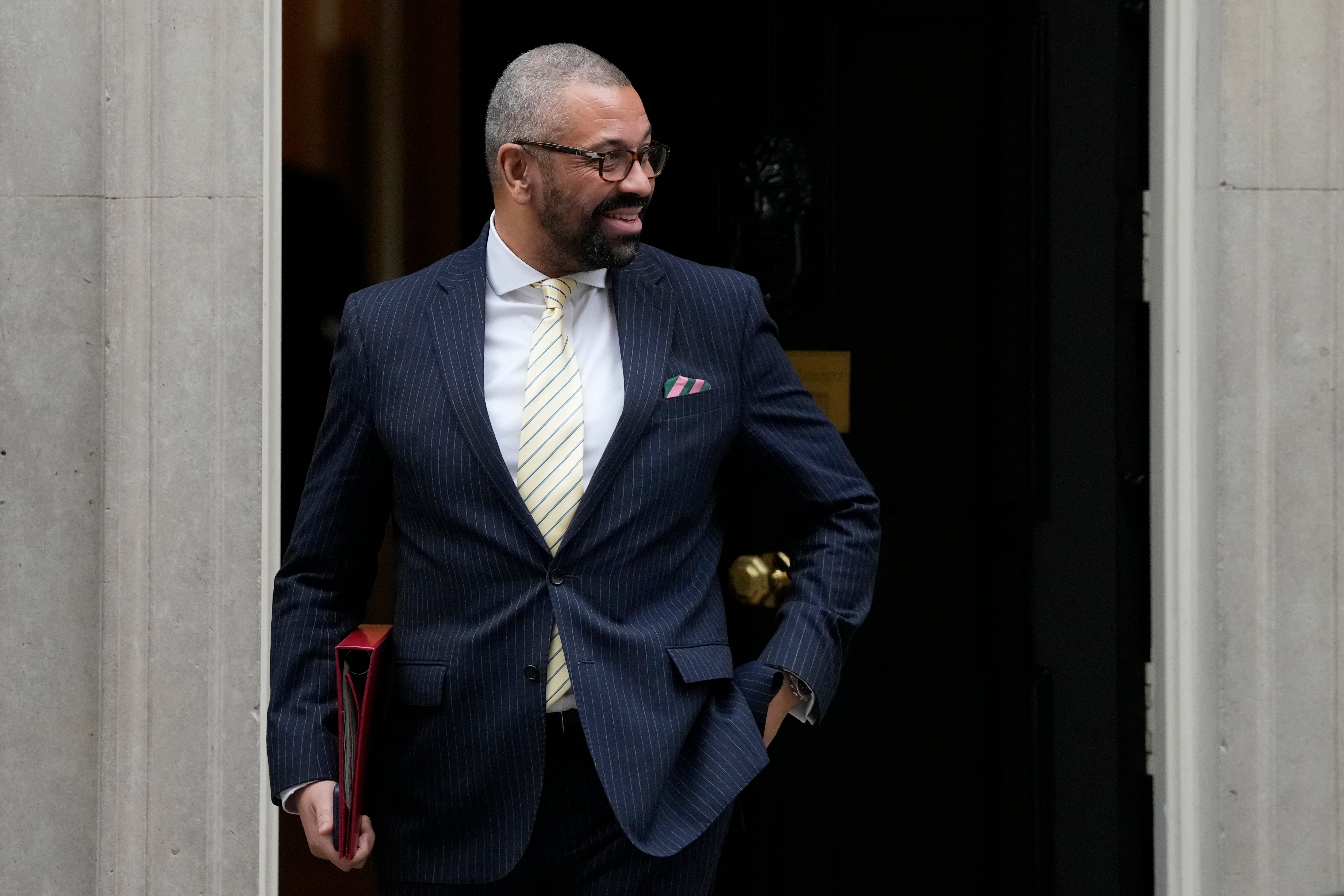UK unveils tough new rules designed to cut immigrant numbers
The British government has announced tough new immigration rules it says will reduce the number of people able to move to the U.K. each year by hundreds of thousands

The British government announced tough new immigration rules Monday that it says will reduce the number of people able to move to the U.K. each year by hundreds of thousands.
Home Secretary James Cleverly said he was taking “robust action” to lower authorized immigration, which hit a record level of almost 750,000 people in 2022. Critics said the moves would leave overstretched sectors like health and social care at a breaking point.
Under the new rules, immigrants will have to earn more to get a work visa and will find it harder to bring family members to the U.K.
Cleverly said that from the spring of 2024, prospective immigrants will have to earn 38,700 pounds ($48,900) to get a skilled worker visa, up from 26,200 pounds ($33,000) now. British citizens who want to bring their foreign spouse to Britain will have to earn the same amount – almost double the current threshold.
Health and social care, sectors that are highly reliant on immigrant staff, are exempt from the salary rule. But care workers from overseas will no longer be able to bring dependent relatives with them to Britain, leading to concerns in the industry that fewer will want to come.
The government also said it would scrap a rule that lets employers in sectors on a “shortage occupation list” pay immigrant workers 20% less than U.K. citizens.
Starting in January, most foreign graduate students also will no longer be able to bring family members to the U.K.
Cleverly said the new measures would reduce by 300,000 the number of people eligible to move to Britain in future years.
Revised figures released last month by the Office for National Statistics said net migration to the U.K. — the number of people arriving minus those leaving — was a record 745,000 in 2022. Net migration in the 12 months to June 2023 decreased to 672,000.
Reducing immigration is a totemic issue for many in the governing Conservative Party, who backed Britain’s exit from the European Union in order to “take back control” of the country’s borders.
Britain left the bloc in 2020, ending the automatic right of citizens from the 27 EU nations to live and work in the U.K. Since then the number of visas issued for people to come to Britain for work or study has soared. The country has also taken in hundreds of thousands of people fleeing war in Ukraine and the Chinese government’s crackdown on civil liberties in Hong Kong. The 2022 immigration figure is three times the pre-Brexit level.
The Conservatives believe cutting immigration will shore up votes ahead of an election next year, because many voters see immigrants as adding to pressure on already overstretched public services and worsening a housing crisis.
But many economists say immigrants are needed to fill essential jobs – especially in health care and in low-paid social care roles -- and that they contribute more to the economy than they receive.
Christina McAnea, general-secretary of the Unison trade union, said the measures would be a “total disaster” for health and the care sector.
“Migrant workers were encouraged to come here because both sectors are critically short of staff. Hospitals and care homes simply couldn’t function without them," she said. “Migrants will now head to more welcoming countries, rather than be forced to live without their families.”
Opposition Labour Party immigration spokeswoman Yvette Cooper said the government had failed to train U.K. workers to fill key jobs.
“Where is the workforce plan on social care, on engineering, on bricklaying, on all shortage occupations that their total economic failure has left us with?” she said.
The government is also under pressure to meet its own goal of stopping unauthorized asylum-seekers arriving on small boats across the English Channel.
Last month the U.K. Supreme Court ruled that its plan to send some people arriving by boat on a one-way trip to Rwanda – intended to discourage others from making the risky sea crossing – was illegal because Rwanda is not a safe country for refugees.
The government said it would strike a new treaty with Rwanda to address the court’s concerns. Cleverly is expected to fly to the Rwandan capital. Kigali, this week to finalize the deal.
Britain has already paid the East African country at least 140 million pounds under the agreement struck in April 2022, but no one has yet been set to Rwanda.
___
Follow AP’s coverage of migration issues at https://apnews.com/hub/migration
Bookmark popover
Removed from bookmarks